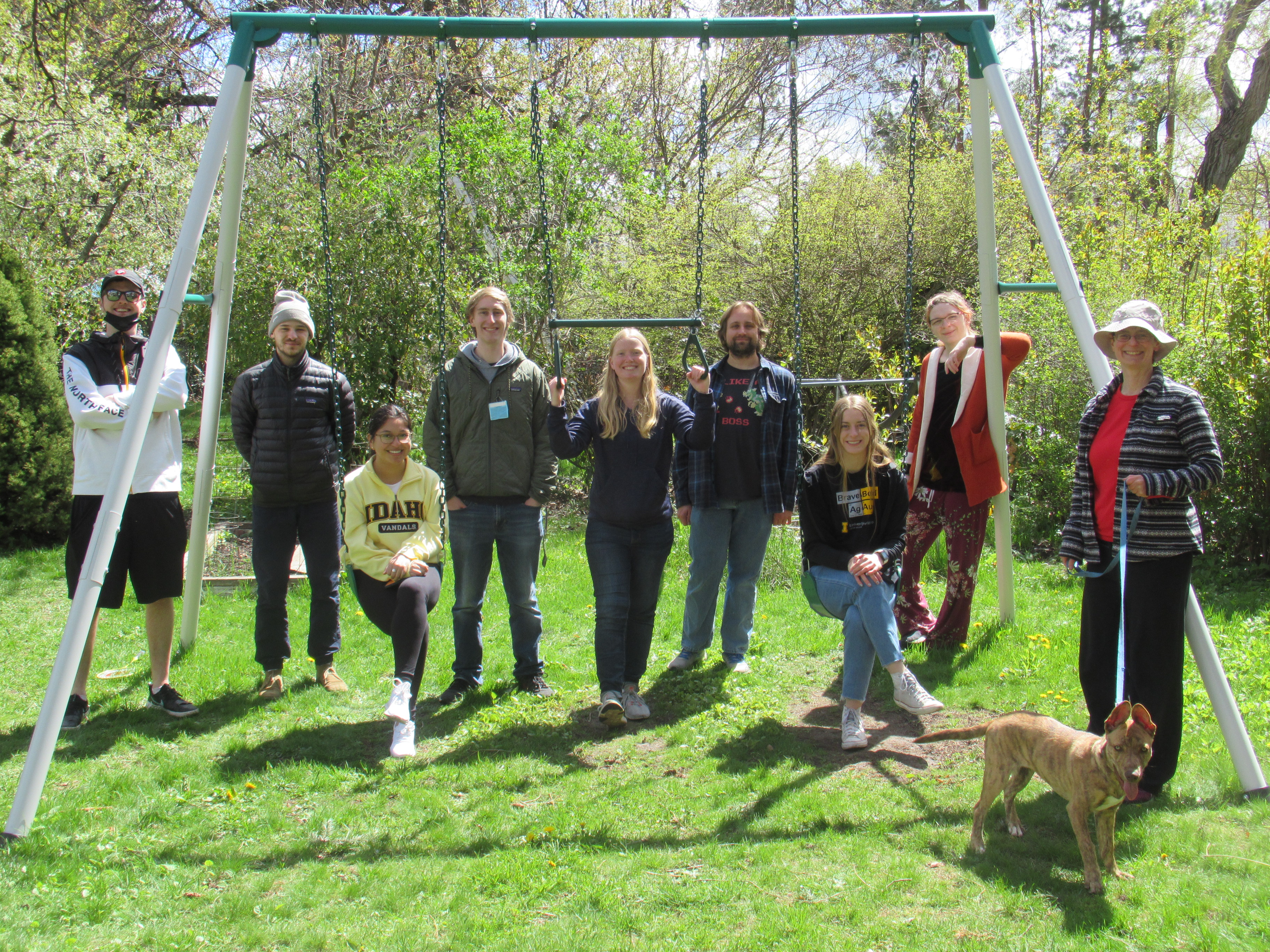Welcome to the Mind In Movement Laboratory

The Mind in Movement Laboratory is located on the main campus of the University of Idaho, in Moscow, Idaho. We are associated with the Department of Psychology & Communication Studies, the Neuroscience Program, and the Graduate Program in Experimental Psychology with an emphasis on Human Factors.
The field of action research encompasses posture and movement and draws on methods from biomechanics, motor control, and psychology. Our work is inspired by the idea that cognitive factors are important for controlling action, and that, therefore, how people carry themselves can yield important insights about how they think.
A better understanding of the role of thought in action may lead to novel treatments for movement disorders such as Parkinson's disease, to better workplace design to reduce strain and injury, and to insights into how to reduce psychophysical problems associated with aging.

Latest News
Spring 2024
Celeste Condie won the 2024 Phil Mohan Avard for Academic Excellence.Pepper Bisset won the 2024 William Reese Award for Outstanding Student Research.
Colby Hillend was awarded the University of Idaho's Summer Undergraduate Research Fellowship.
Katie Blomgren has accepted an offer of admission from the Clinical Mental Health Counseling (MS) program at Prescott University.
At the Pan American Parkinson's Disease and Movement Disorders Congress in Cartagena, Colombia we presented a poster: Importance of informal care partner participation in interventions for people living with Parkinson’s disease
Fall 2023
In collaboration with The Poise Project, a talk 'Partnering with Poise': Retention of Benefits 12 months after an Alexander technique online group course for care partners of people living with dementia was given at Alzheimer Europe in Helsinki, Finland.
Summer 2023
At the World Parkinson Congress in Barcelona, Spain we presented a poster: ‘Partnering with Poise’: Retention of cognitive, emotional, and physical benefits for care partners of people living with Parkinson's disease at 6 and 12 months after completion of an in-person Alexander-based group course.